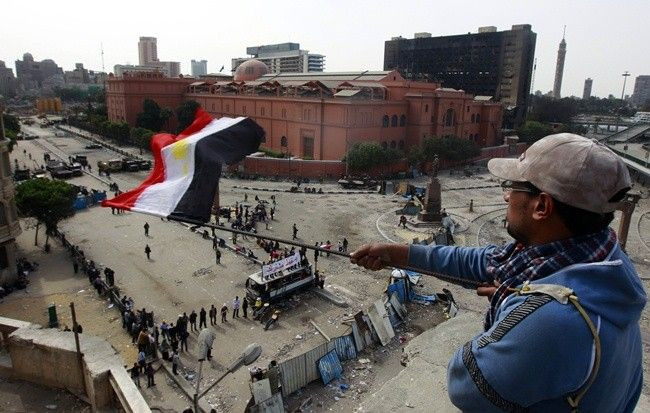Q&A: Egypt-U.S. relations and stability concerns

The following is an edited interview with Ellen Lust, a professor of political science at Yale University.
Q: What has been relationship between the U.S. and Egypt governments in recent decades?
A: The relationship between the United States and Egypt has actually been quite close since the late 1970s -- the period of [Egypt's previous president]Anwar Sadat and Egypt essentially, what some people think as a turn towards the West, but certainly a turn towards the peace treaty with Israel.
Then what followed was a period of significantly close relations with the United States as well as a long term aid relationship with the United States.
So for instance, both on the military and the economic aid side, in the last year we gave about $1.3 billion of aid and, this is reflective of the types of relationships which we've had.
Q: As a result of the protests and the instability that seems to be there now, how could those trade and political relationships be affected?
A: It's interesting that we're obviously quite concerned about that and that's been the reason you hear the statements about not wanting to see another Iran and worries about the ways in which political openings, or political vacuums could be exploited.
I see the reasons for those concerns but I also see the reason why an Egyptian regime moving forward will be interested in being able to sort of help solve economic problems, will be interested into trying to move itself into a position where it meets the demands of the people. That's of course the reasons why we're seeing the protests to begin with.
Q: There are some concerns about the situation being so destabilized that an extremist government could take over. How warranted are those worries?
A: There's no question that the Muslim Brotherhood is a well-organized force in Egypt, which is one of the reasons that you hear these concerns. It also is a fairly heterogeneous movement, so there are more moderate and more radical voices within it and it's not the only set of actors, and not the only movement by far in Egypt.
So the issue is that when we move forward, how likely that kind of scenario -- the sort of Iran and Egypt and the destabilization -- is going to depend on, I think a lot on how we deal Egypt.
So if we start to push the processes of democratization, push for freedom, be willing to work with the Muslim [Brotherhood] as well as the other forces within Egypt and not try to sort of shut out forces in the hopes of promoting stability -- which is essentially what we've been doing the last decades -- then I actually think our possibility of having a stable, friendly, stable and democratic regime is Egypt is much higher.
© Copyright IBTimes 2024. All rights reserved.





















